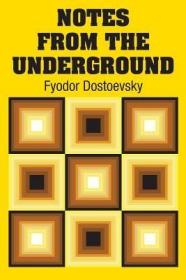
现货Notes from the Underground[9781731705495]
¥ 92 九五品
库存3件
作者Dostoevsky, Fyodor
出版社Simon & Brown
ISBN9781731705495
出版时间2018-11
装帧平装
纸张其他
页数120页
正文语种英语
上书时间2023-09-26
- 最新上架
商品详情
- 品相描述:九五品
- 商品描述
- "Notes From the Underground" of the mind is the treacherous terrain into which Dostoevsky here delves deep, exposing its most buried fears and desires. Notes is considered by many to be one of the first existentialist novels. It presents itself as an excerpt from the rambling memoirs of a bitter, isolated, unnamed narrator (generally referred to by critics as the Underground Man), who is a retired civil servant living in St. Petersburg. The first part of the story is told in monologue form, or the underground man's diary, and attacks emerging Western philosophy, especially Nikolay Chernyshevsky's What Is to Be Done? The second part of the book is called "Apropos of the Wet Snow" and describes certain events that appear to be destroying and sometimes renewing the underground man, who acts as a first person, unreliable narrator and anti-hero. Russian writer Dostoyevsky wrote the classics Crime and Punishment and The Brothers Karamazov. His work explored psychology and existentialism. Born in 1821 in Moscow, Russia, Fyodor Dostoyevsky was educated at home until 1833. He studied to be a military engineer, but shortly after graduating decided to become a writer. He experienced traumatic events, including a mock execution and exile. His work explored the human condition and is credited with shaping existentialism. Crime and Punishment is one of his most well-known novels. Fyodor Dostoevsky was born into modest nobility and lived lavishly as a military engineer while running in liberal utopian literary circles. He was sentenced to death, pardoned at the last moment, and served four years of Siberian hard labor. He became disillusioned with human nature, gambled himself into poverty, rose to celebrity, and wrote novels that plumb the darkest depths of human psychology with as keen an eye as any author before or since. Collected here are 21 of his novels, novellas, and short stories, including the genre-defining Notes from Underground, the intensely cerebral classic Crime and Punishment, and his epic last novel The Brothers Karamazov. While serving his hard labor sentence he read nothing but the New Testament (the only book allowed in prison), which profoundly influenced his later works. His mature novels are replete with themes of human depravity, moral searching, and Christian redemption. These volumes contain some of the earliest English translations, most from the prodigious and eminently readable Constance Garnett, who introduced the English speaking world to the Russian novel, and set the standard for generations to come. In the Logos editions these texts are fully indexed and searchable, with all Scripture references available on mouseover, helping you explore the human psyche with the great literary psychologist like never before.
相关推荐
-
![现货Notes from the Underground[9781731705488]](https://www0.kfzimg.com/sw/kfz-cos/kfzimg/17733071/17a3d14ca25cee1a_s.jpg)
现货Notes from the Underground[9781731705488]
九五品上海
¥ 195.00
-
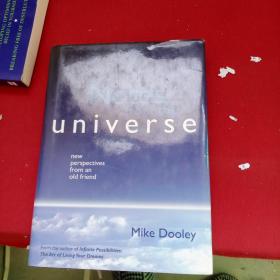
Notes from the universe
九品北京
¥ 220.00
-
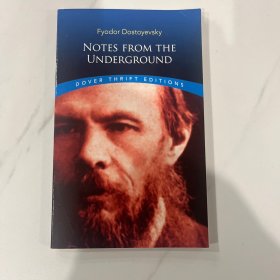
Notes from the Underground
九五品桂林
¥ 38.00
-

notes from the editors
九品齐齐哈尔
¥ 150.00
-
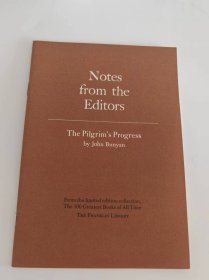
notes from the editors
九五品齐齐哈尔
¥ 240.00
-

notes from the editors
九五品齐齐哈尔
¥ 150.00
-
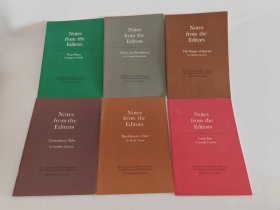
notes from the editors
九五品齐齐哈尔
¥ 180.00
-

Notes from the Country Club
九品广州
¥ 98.00
-
![现货Notes from Underground[9781365402272]](https://www0.kfzimg.com/sw/kfz-cos/kfzimg/17733071/fcf83daab42e133b_s.jpg)
现货Notes from Underground[9781365402272]
九五品上海
¥ 211.00
-

DOTOYEVSKY NOTES FROM UNDERGROUND THE DOUBLE
八五品北京
¥ 100.00
— 没有更多了 —
![现货Notes from the Underground[9781731705495]](https://www0.kfzimg.com/sw/kfz-cos/kfzimg/17733071/e4de9b299c1ea24d_b.jpg)

![现货Materials and Technologies of Modern Production[9783036401683]](https://www0.kfzimg.com/sw/kfz-cos/kfzimg/17733071/5fd2824531e165d7_s.jpg)
![现货Introduction to Container Ship Operations and Onboard Safety[9781032155425]](https://www0.kfzimg.com/sw/kfz-cos/kfzimg/17733071/58b7ff43ef7909ee_s.jpg)
![现货Electrophosphorescent Materials and Devices[9789814877343]](https://www0.kfzimg.com/sw/kfz-cos/kfzimg/17733071/18cc1d77bcb7b488_s.jpg)
![现货Organic Semiconductors for Optoelectronics[9781119146100]](https://www0.kfzimg.com/sw/kfz-cos/kfzimg/17733071/24c85a750c708964_s.jpg)
![现货Advances in Food Rheology and Its Applications[9780081004319]](https://www0.kfzimg.com/sw/kfz-cos/kfzimg/17733071/e0c11603c9119d4d_s.jpg)
![现货Advanced Materials and Sustainable Technologies[9783035727562]](https://www0.kfzimg.com/sw/kfz-cos/kfzimg/17733071/dced675333874c48_s.jpg)
![现货Advanced Materials and Manufacturing Engineering II[9783035712681]](https://www0.kfzimg.com/sw/kfz-cos/kfzimg/17733071/660ccfae75fa8d3e_s.jpg)
![现货Materials in Machinery and Construction[9783035718119]](https://www0.kfzimg.com/sw/kfz-cos/kfzimg/17733071/6f402060775e9daa_s.jpg)
![现货Cereal Grain Quality (Softcover Reprint of the Original 1st 1996)[9789401071772]](https://www0.kfzimg.com/sw/kfz-cos/kfzimg/17733071/f93ca1c96a97403a_s.jpg)
![现货Notes from the Underground[9781731705495]](/dist/img/error.jpg)
以下为对购买帮助不大的评价